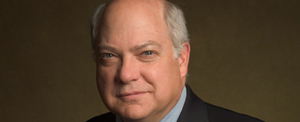Notre Dame expert has advice for Toyota
Published: February 24, 2010 / Author: Mendoza College

For Toyota to survive its current crisis, the key strategy will be for the automaker to, first and foremost, solve the problem of the faulty accelerators. Second, the automaker should be completely transparent with the public in communicating the solution.
Toyota has been an abject failure on both counts so far, says James O’Rourke IV, director of the Fanning Center for Business Communication at the University of Notre Dame. And the company now faces a permanent loss of legitimacy that could ultimately lead to its demise.
O’Rourke has an extensive background in corporate communications and is writing a book about how a company should handle crisis situations.
“At this point, it is not clear that Toyota even understands the nature of the problem,” says O’Rourke. “Jim Lentz’s apology before the House Energy and Commerce Committee was appropriately contrite, but ultimately not that encouraging because he didn’t have a solution. If Toyota wants to turn this around, they must let the public see what they are doing to resolve the situation as they are doing it, and they must communicate that regularly, openly and honestly.”
O’Rourke says that Toyota’s culture worked against it in two ways. “Japan is a nation of cultural consensus. The company can’t move forward until all the key players buy in. When there was ambivalence in the ranks about not only the mechanical problem but how much to tell the public, the company froze. The desire to speak with one voice worked against them. They needed to move faster.”
Second, Toyota insisted that the problem was a minor one because statistically, it involves a very small percentage of vehicles manufactured. “In their mind, this was a trivial issue. But even though that is true, the problem is translating into real lives being lost. And that is what the public will react to.”
Other companies have survived similar scenarios, but with differing results.
Pharmaceutical giant Merck pulled its popular painkiller Vioxx off the market in 2004 after it was linked to cardiovascular problems. The company eventually paid out more than $5 billion in legal claims but exists as a viable company today.
Firestone Tire and Rubber Co., on the other hand, issued belated, weak apologies when its tires on Ford Explorers were blamed for tread separation leading to rollover deaths in 2000. The company, once the No. 1 manufacturer of replacement tires by a wide margin, is now a marginal player in the North American market.
Toyota’s stock price is currently hovering at about $74 per share, compared to $66 per share a year ago. The fact that the price seems to be holding means that the market does not yet see either top-line or bottom-line threats to the business.
“If top-line revenues begin to shrink – meaning that fewer customers are buying new Toyotas – or if their cost structure changes significantly, you’ll see widespread defections from the stock, particularly from institutional investors,” says O’Rourke.
Toyota probably has the financial wherewithal to survive this crisis, he adds. But to restore credibility, the automaker should take the following steps:
Invite the press and public in to company deliberations once Toyota has a solution in hand to show how it works and how it will be implemented. Along with this advice goes an additional point that Toyota should take the money it is currently spending on “we’re sorry” commercials and devote it to a solution. “Saying you’re sorry isn’t enough, and an advertisement as paid media has a credibility problem associated with it,” says O’Rourke.
Be accountable on a global basis, not just in the North American market, because there are global stakeholders, including dealers, investors, employees and government regulators.
Work with government and industry partners to both find the answers and communicate them.
Don’t underestimate the power of the critics. “It’s not the press who will do the most damage to Toyota’s reputation, but knowledgeable critics, such as auto and safety experts and car owners. They have been savaging Toyota in the blogosphere,” says O’Rourke.
Prepare for lawsuits. The sooner Toyota can aggregate the litigants, the sooner it can get back to operations
/news_and_events/news_articles/article/5659/notre-dame-expert-has-advice-for-toyota




